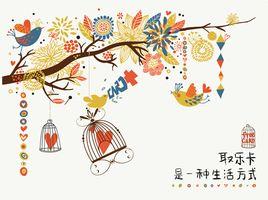Introduction to the characteristics of Guatemala Fine Coffee Flavor Manor with balanced acidity
United Fruit has its largest estate in Guatemala, and it also owns medium
Guatemala
Guatemala
Inter-American Railway and the only seaport in Guatemala. Driven by the United Fruit Company, the US Ministry of Foreign Affairs began a propaganda war against Guatemala to crack down on the Arbens regime in the name of anti-communism. The Central Intelligence Agency, in cooperation with the opposition among Guatemalan soldiers, launched an operation called Operation PBSUCCESS.
In 1954, Arbens was overthrown and Castillo Armas became the new dictator. The new government immediately invalidated all reforms. During the period when the right-wing junta and civilian government were in power, Guatemala was located in the tropics. The northern and eastern coastal plains had a tropical rain forest climate, while the southern mountains had a subtropical climate. The year was divided into two dry and wet seasons, with May to October as the wet season and November to April as the dry season. The narrow and fertile flatlands on the Pacific side of Guatemala have a tropical climate. The central plateau is also the cultural center of Guatemala, where temperatures are mild all year round at an altitude of 1300 to 1800 meters, with daily temperatures between 18 and 28 ℃, and higher levels tend to be colder in January and February. The annual precipitation is 2000-3000 mm in the northeast and 500-1000 mm in the south. The national emblem of Guatemala is round, with an unfolded scroll in the middle of the blue circle.
Guatemala
Guatemala
"Freedom, September 15, 1821" was written in Spanish to commemorate Guatemala's independence from Spanish colonial rule. A green gechar bird perches on the scroll. This is Guatemala's national bird, also known as the "Bird of Freedom", which is regarded as a symbol of freedom, patriotism and friendship. Behind the scroll are rifles and swords, symbolizing that the people of the country are always ready to defend the freedom of the motherland. The above pattern is surrounded by laurel branches
The volcano once destroyed the once-prosperous capital in an instant, robbing it of all its prosperity and beauty overnight. After this subversive mountain city, the splendor has disappeared for more than 200 years, and Antigua has never swaggered again. After being dull, Antigua is now run by the last remaining Indians. These hardworking Indians became later coffee producers. They not only discovered the rich and attractive unique smell of Antigua coffee, but also brought it to people all over the world. Today, Antigua coffee enjoys the reputation of the best quality coffee in the world, and is praised by coffee connoisseurs as the best and most distinctive coffee in the world. Guatemalan coffee has a strong aroma, even if you don't drink it. Smelling that aroma is already a kind of enjoyment. Antigua coffee has a rich and velvety mellow, rich and lively aroma, and fine sour taste. When the attractive fragrance lingers on the tip of your tongue, there is an indescribable mystery. You may feel dull at the first sip, but as the coffee cools, you will find it slightly sweet and surprised by its depth. Some of Guatemala's best coffee is currently exported to Japan, where it sells for $3 to $4 per cup. In order to revitalize its coffee industry, Guatemala has specially set up a special coffee association and gives maximum funding and attention to these high-quality coffee. These efforts will soon bear fruit. The real beneficiaries are not only those coffee growers, but also coffee lovers all over the world. The coffee produced in Guatemala is one of the top coffee in the world, because Guatemala is a high-altitude volcanic terrain. And these volcanoes are the ideal places to grow coffee. Compared with other varieties of coffee, critics prefer this mixed flavor coffee with spicy flavor. The extra hard coffee beans here are a rare good coffee with full grains, delicious taste and balanced acidity. In addition, its giant coffee beans have attracted a lot of attention in Guatemala

Important Notice :
前街咖啡 FrontStreet Coffee has moved to new addredd:
FrontStreet Coffee Address: 315,Donghua East Road,GuangZhou
Tel:020 38364473
- Prev

Introduction to the characteristics of Indonesian Java Coffee Flavor Manor with fragrance filling the whole mouth
Located between the vast Indian Ocean and the Pacific Ocean, Indonesia is a country of 18108 islands, of which Java is the fourth largest. Java, which is surrounded by the sea, has a tropical rain forest climate. There is no change of cold and summer seasons. The annual average temperature is 25 degrees Celsius and the rainfall is abundant. The unique natural conditions make the tropical plants on the island
- Next

Introduction to the characteristics of the Flower-scented Kilimanjaro Coffee Flavor Manor in Tanzania
The Tanganyika inland was placed under the German sphere of influence in 1886, the whole territory of Tanganyika was occupied by British forces in November 1917, and became a British mandate in 1920. In 1946, the United Nations General Assembly adopted a resolution to change it into a British trusteeship. On May 1, 1961, Tanzania achieved internal autonomy. On December 9 of the same year, the Tanganyika Republic was established. In October 2000, the Tanganyika Republic was established. In October 2000, Tanganyika won a republic.
Related
- Detailed explanation of Jadeite planting Land in Panamanian Jadeite Manor introduction to the grading system of Jadeite competitive bidding, Red bid, Green bid and Rose Summer
- Story of Coffee planting in Brenka region of Costa Rica Stonehenge Manor anaerobic heavy honey treatment of flavor mouth
- What's on the barrel of Blue Mountain Coffee beans?
- Can American coffee also pull flowers? How to use hot American style to pull out a good-looking pattern?
- Can you make a cold extract with coffee beans? What is the right proportion for cold-extracted coffee formula?
- Indonesian PWN Gold Mandrine Coffee Origin Features Flavor How to Chong? Mandolin coffee is American.
- A brief introduction to the flavor characteristics of Brazilian yellow bourbon coffee beans
- What is the effect of different water quality on the flavor of cold-extracted coffee? What kind of water is best for brewing coffee?
- Why do you think of Rose Summer whenever you mention Panamanian coffee?
- Introduction to the characteristics of authentic blue mountain coffee bean producing areas? What is the CIB Coffee Authority in Jamaica?

